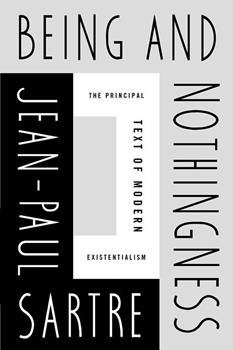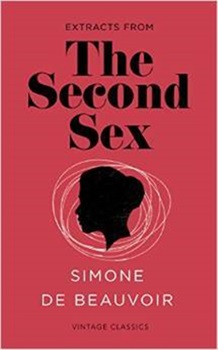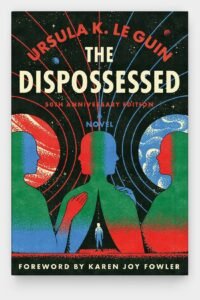10 philosophical books to consider reading for the new year:
Philosophy is often seen as the art of asking profound questions about life, existence, and meaning. It’s about reflecting on the big ideas that shape the world and our understanding of it. Whether you’re grappling with what it means to live a good life, pondering the mysteries of the universe, or exploring the limits of human knowledge, philosophy offers valuable tools for critical thinking. It encourages us to question assumptions, challenge conventional wisdom, and seek truth in ways that might not be obvious at first glance. The following ten books, written by some of the most influential thinkers in history, are perfect for anyone looking to dive into the world of philosophical inquiry.
Each of these works opens up new ways of thinking, offering fresh perspectives on topics like ethics, morality, freedom, knowledge, and the meaning of life. For example, Marcus Aurelius’s Meditations teaches us how to find inner peace and strength through Stoic philosophy, while Plato’s The Republic challenges us to rethink justice and the structure of society. Sartre’s Being and Nothingness explores the freedom and responsibility that come with existence, and Camus’s The Myth of Sisyphus tackles life’s inherent absurdity with an uplifting embrace of struggle and effort.
Nietzsche’s Thus Spoke Zarathustra encourages us to break free from societal constraints and create our own values, while Kant’s Critique of Pure Reason pushes us to rethink the very nature of knowledge and perception. Spinoza’s The Ethics invites us to understand the interconnectedness of all things and the path to true freedom, while the Tao Te Ching offers timeless wisdom on living in harmony with the natural flow of the universe.
These books are not just academic texts—they are invitations to explore the fundamental questions of human existence. Whether you’re a seasoned philosopher or a curious beginner, these works will challenge, inspire, and transform the way you see the world.
1 ) “Meditations” by Marcus Aurelius
This book is a collection of personal thoughts by the Roman Emperor, Marcus Aurelius. It teaches Stoic philosophy, focusing on controlling your emotions, being a good leader, and staying calm in difficult situations. It helps you understand how to live a peaceful and virtuous life, no matter the challenges you face.

2) “The Republic” by Plato
In this book, Plato talks about justice, what makes a good society, and the role of individuals within it. He uses Socrates to discuss how the ideal society should be organized, how leaders should be chosen, and how people should work together for the common good. It also introduces the famous allegory of the cave, which shows how we often mistake appearances for reality.

3) “Being and Nothingness” by Jean-Paul Sartre
This book explores the idea of human freedom. Sartre argues that people are free to make their own choices, but this freedom comes with responsibility. It examines how we create our own meaning in life and how we face the uncertainty and challenges of existence without relying on external rules.

4) “The Myth of Sisyphus” by Albert Camus
Camus uses the Greek myth of Sisyphus, a man doomed to endlessly push a boulder uphill, as a metaphor for life. He argues that life is absurd because it doesn’t have inherent meaning. However, he suggests that we can find meaning in life by embracing the struggle and finding joy in the effort, much like Sisyphus does in his endless task.

5) “Thus Spoke Zarathustra” by Friedrich Nietzsche
This book tells the story of a man named Zarathustra who rejects traditional values and teaches that people should create their own meaning in life. Nietzsche introduces ideas like the “Übermensch” (a person who transcends ordinary limits) and the idea that we must overcome traditional moral values to live fully.

6) “Critique of Pure Reason” by Immanuel Kant
Kant explores how we understand the world. He argues that we can never know things as they truly are, but only as they appear to us through our senses and our mind. This book challenges the way we think about reality and how our minds shape our experiences.
7) “The Ethics” by Baruch Spinoza
In this book, Spinoza explains how everything in the universe is connected. He teaches that understanding the world through reason can lead to happiness and freedom. Spinoza also suggests that by understanding nature and God, we can live a moral life and find peace.

8) “The Tao Te Ching” by Lao Tzu
This book teaches Taoism, a philosophy focused on living in harmony with the Tao, which is the natural flow of the universe. Lao Tzu advises simplicity, humility, and letting things happen naturally without forcing them. It’s about going with the flow of life and finding balance.

9) “The Genealogy of Morals” by Friedrich Nietzsche
Nietzsche explores where our ideas of good and evil come from. He argues that many of our moral values were created by society and have been shaped by weakness and fear. Nietzsche calls for a reevaluation of these values and encourages people to embrace strength and self-expression instead of following traditional moral rules.

10 ) “The Second Sex” by Simone de Beauvoir
This book explores the history and social roles of women. De Beauvoir argues that women have been treated as inferior to men and defined only in relation to them. She calls for women to be seen as equal and independent, and for society to change to allow women to live freely and fully.


